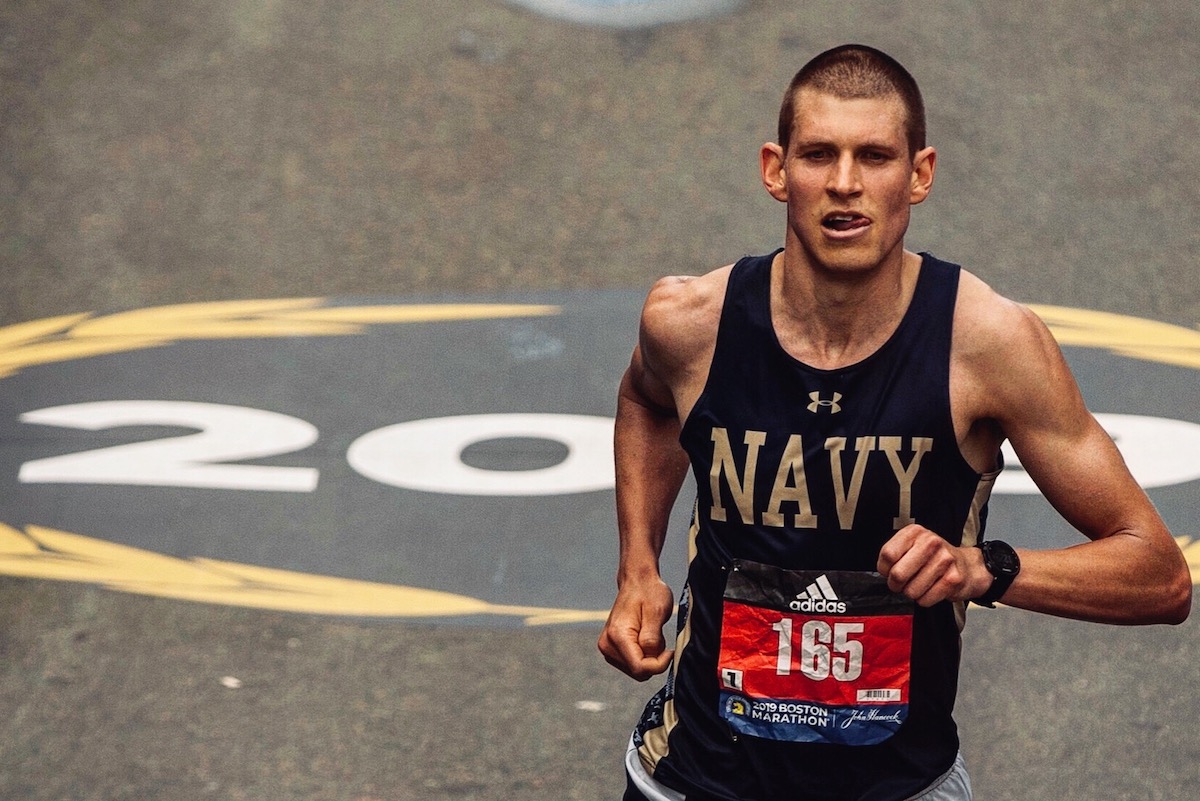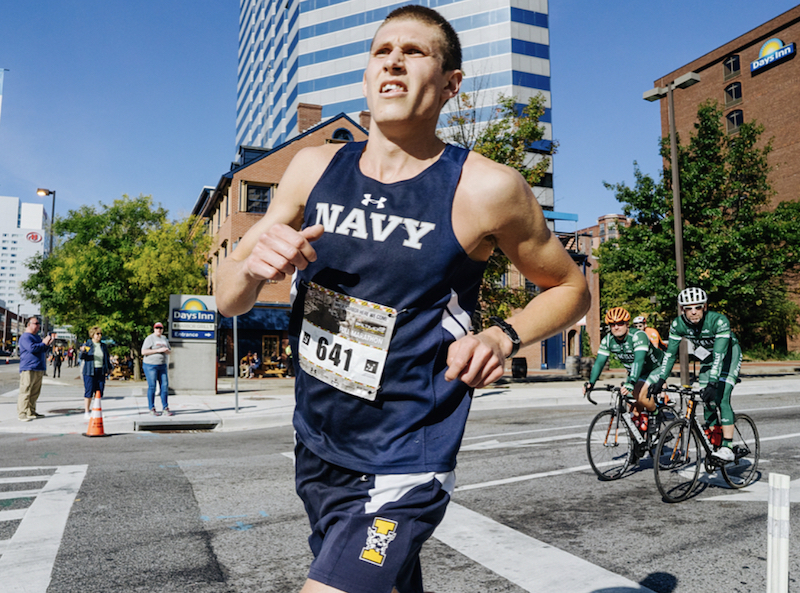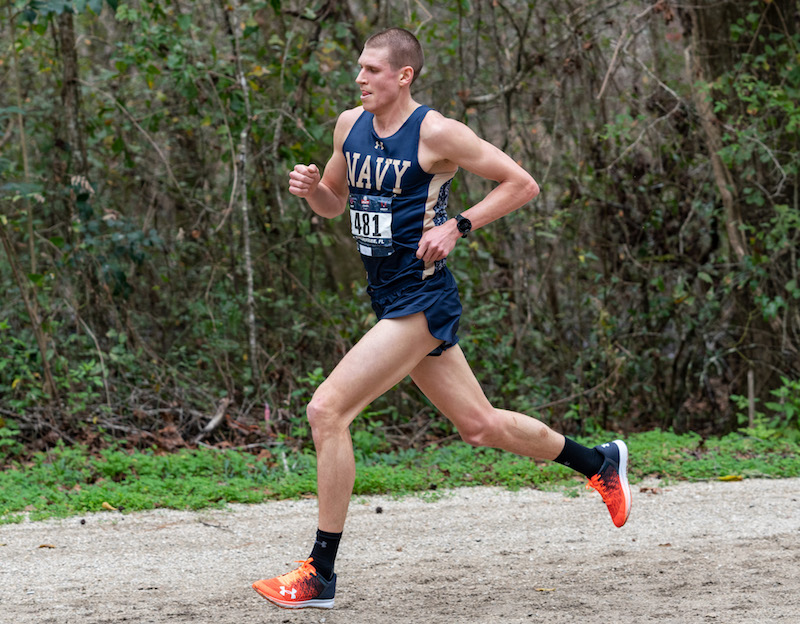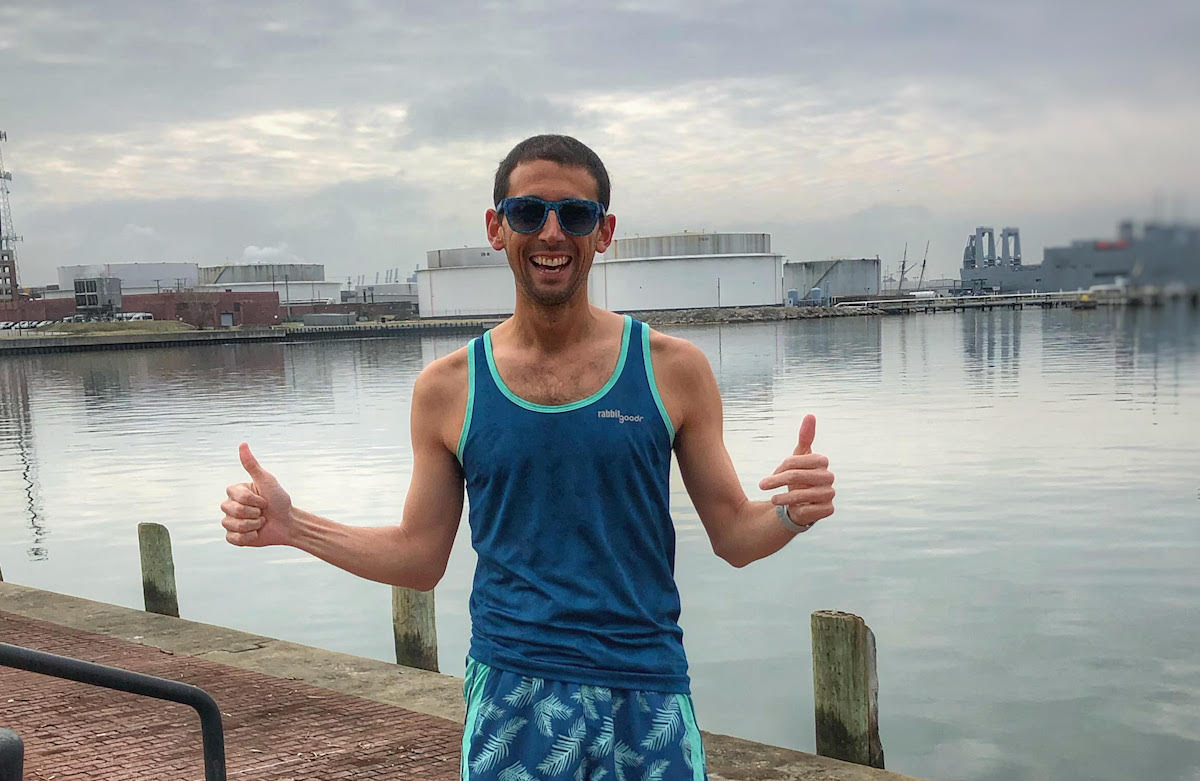
When most people look at the menu of marathons in which to set a personal best, they tend to pick the two most popular items—flat and fast. When Jordan Tropf chooses his course, he prefers hilly and tough. Cooked well, with a side of unpredictable weather.
“I tend to do better in conditions that slow other people down. My whole mentality, how I’ve been trained—I just don’t care, and make the best of it,” said Tropf, a Navy lieutenant and orthopedic surgery resident in Silver Spring, Md.
That mindset propelled him to a win this past Sunday in the Big Sur International Marathon, where Tropf, 27, set a personal record of 2:25:22, on a course featuring nearly 2,200 feet of elevation gain.
“Knowing those hills were out there, I saw it as my advantage,” said Tropf.
Like most of his races, including his 2017 win in the Baltimore Marathon, he led the race wire-to-wire, putting as much distance between himself and the field early on.
“I just took it out and nobody came, so I was just like, ‘Okay, let’s go.”
The Big Sur win was an exclamation mark to a spring of bucket-list achievements.
In early April, Tropf took sixth place in his age group at the Port Elizabeth Ironman in South Africa, with times of 36:32 on the swim (which was shortened due to rough sea conditions), 5:32:40 on the 180.2K ride, and 2:46:59 for the 26.2-mile run. Only his second Ironman, he barely missed out on his top goal of securing a spot in the Ironman World Championships in Kona.
Just two weeks later, after some sightseeing and a 20-hour flight back to the U.S., Tropf ran the Boston Marathon, finishing in 2:27:21 on an overly warm day.

Photo by Ian Johnston
Similar to his method of race selection, Tropf’s approach to his training is equally unconventional. As a first-year resident at the Walter Reed Medical Center, his work takes top priority.
“The learning curve is pretty significant,” admitted Tropf, who typically sleeps 5 hours a night and wakes up at 3:30 a.m. “I love running, but if I have extra energy or time, I put it into being a better doc, better resident, better surgeon.”
During his Ironman training, he used his indoor cycle time to study and get work done. In fact, he never touched an outdoor road until the actual race day in South Africa, where he used his 10-year-old Cervelo, sans most high-end parts typically found on an Ironman bike. (He originally bought the bike to visit his now-wife Hannah, who was going to school 50 miles away at Georgetown at the time; first-year midshipmen are not permitted to drive.)
Tropf trains and races in the same pair of shoes, the Newton Gravity 8, a line he rarely deviates from. Most of his 80-mile running weeks were comprised of run commutes to and from the hospital; outside Washington, D.C., it’s barely longer than the drive time.
And good luck asking him about training details.
“People always ask me if I’m on Strava, but you won’t find a running log in my house,” Tropf said, laughing. “It’s just more fun to me if I’m not worried about what’s on paper, but just go by feel.”
So far, that approach is working. After his strong spring season, Tropf is looking to build a good base in the summer and hopefully run a couple marathons in the fall, if time and work allow. He’d like to run the Marine Corps Marathon, which he typically runs every year as part of the Armed Forces Marathon Championship, and may seek to reprise his 2017 Baltimore Marathon win. Of course, there’s also the Olympic Trials Qualifying time, a 2:19 for the marathon B standard.
About the OTQ goal, Tropf says, “I would love to do it, it’s an idea in the back of my mind, but I don’t wake up every day thinking [about it].
For now, he’ll keep doing what works for him, trusting that the results will continue to come.
“Pretty much my goal for everything is breaking the 2:30 mark. Really, beyond that my expectations are just to have a good time.”

Photo by Alex Harden
Have something to say? Leave a Comment

